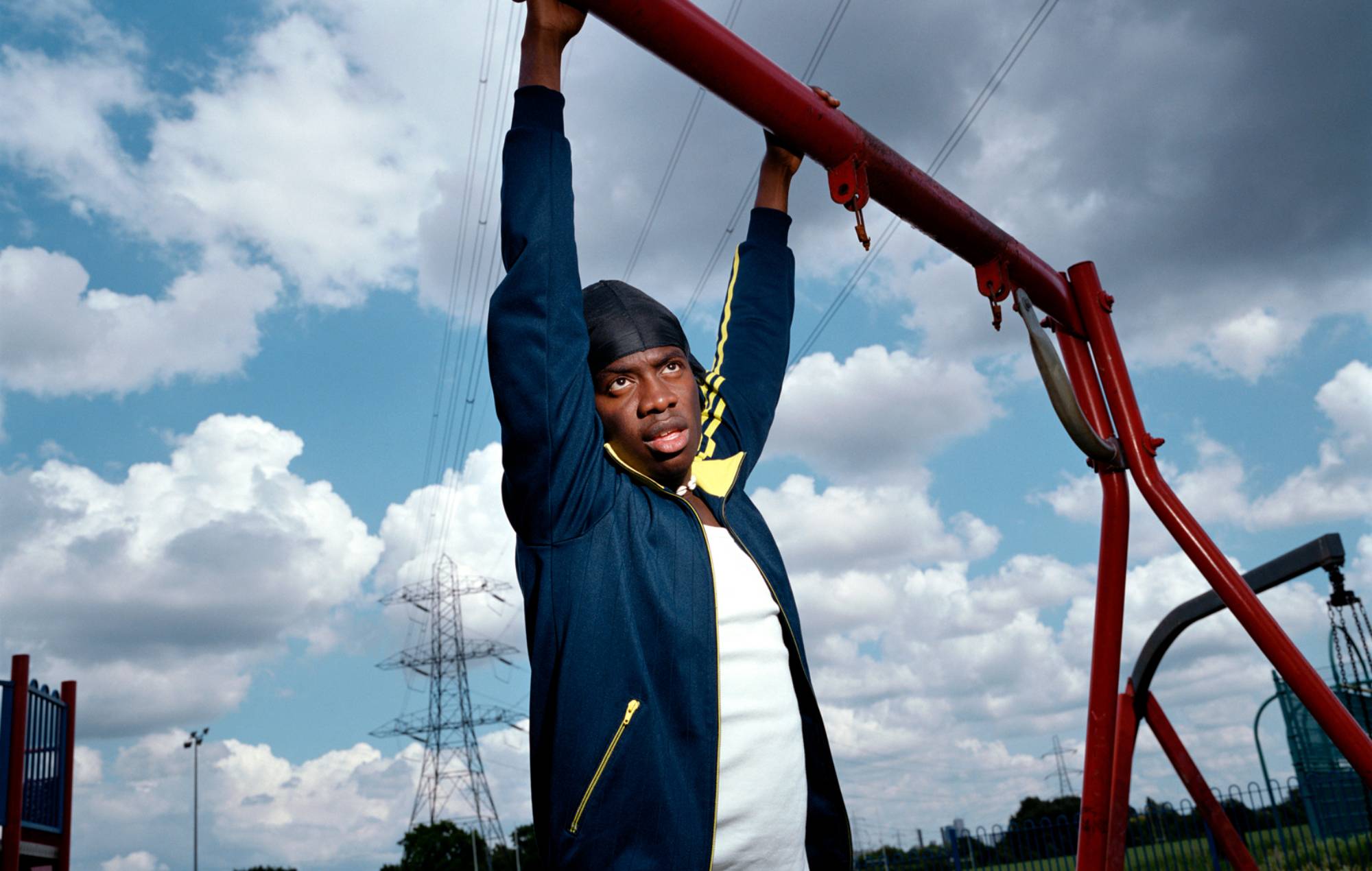Master Peace: the singer leading the way for a new generation of indie stars
Peace Okezie's stunning debut album, How To Make A Master Peace, sees him leading the charge to become a defining voice of Indie's new brigade

If the indie sleaze explosion of the past few years has largely been nostalgic and retrospective, its forward-facing impact looks a lot like Master Peace aka Peace Okezie. The London-born singer’s stunning, transformative debut album, How to Make a Master Peace, lifts sounds and energy from all corners of the 2000s indie scene, moulding it into something that’s new and distinctive.
Across How to Make a Master Peace, you can hear the dark and energetic indie of Bloc Party on ‘Panic101’ and the electro rock of LCD Soundsystem and The Rapture on ‘LOO SONG’. The loose, rowdy ‘Shangaladang’ splits the difference between Pete Doherty and M.I.A, while Georgia collaboration ‘I Might be Fake’ sounds like The Smiths’ ‘Barbarism Begins at Home’ put through a nu-rave filter. It’s an indie album in spirit and energy, but its sound bounces around restlessly, and Peace is endlessly inquisitive in his sonic choices.
Working with producer Matt Schwartz (Yungblud, Dylan), Peace left the comfort zone of his more traditional, boxed-in indie sound on last year’s Peace of Mind EP to explore genre more widely and recklessly. “You don’t risk enough,” the producer told him, Peace recalls in our Rolling Stone UK interview. “You don’t really throw yourself out there.” The album is the sound of this risk paying off. Divorced from current trends and chasing only personal satisfaction, it dives headfirst into Peace’s past and his inspirations. It’s the sort of record that could completely change a teenager’s life.
What was it that you wanted to change about your sound and style after the Peace of Mind EP, and how has this influenced the album?
I played it safe on that EP. I knew where I came from and what I like and the reason people fell in love with me in the first place. It was very obvious — guitars and drums. You knew what you were gonna get. On the album, I realised that I needed to push the boat out. There’s no way I can just sit on the sidelines and do the same thing again. I know a record like this will stand the test of time, and I want people to reference it when they’re making their own records in the future. I didn’t want to make what people want to hear in the current day and age. I wanted to make what I like and to stand behind it.
Did it feel like a risk to make a 2000s-influenced indie record when it’s not a sound that’s in the zeitgeist right now?
It is definitely a risk, but all the people whose music I love — M.I.A., Blood Orange — their music has stood the test of time. I know all this shit because I’ve studied it like it’s an exam. Not to blow my own trumpet, but I know that no tune here sounds like anything else. This album is fucking clear. It needs a Mercury because I know it’s pushing a boundary.
It seems like you’ve had trouble being taken seriously as a Black indie artist. Do you think that’s something people are now finally understanding about you?
I can make as many indie songs as I want, I can fucking fly this flag, and people still call me a rapper. Then you have people like [Murray Matravers] the singer of [the band formerly known as] Easy Life, who raps on every song, but people aren’t gonna call him a rapper. They’ll call him a pop star! I talked to Rachel Chinouriri about this, and I was just like, “Bro, when are they gonna take us in? When are they actually going to accept us into that realm?” All I’ve wanted for so long is for people to just take me in, just a little bit. Take away the race and just actually listen to the music. It feels good to [be] finally, slowly getting there.
In the era you draw inspiration from, Bloc Party’s Kele Okereke and Lightspeed Champion’s Dev Hynes (now Blood Orange) were vital in that representation — did they inspire you to pursue the indie sound?
Those guys were like superheroes to me! I didn’t get it initially, and I’d be lying if I said I did. I thought, ‘Why are you guys making white people music?’ But it’s their thing, and it all came from Black people anyway! I knew in my head that if I could see these guys doing this thing, then I could do it as well. That generation was Kele and Dev, and I want the next generation to think that Master Peace was the person they looked up to. I go places now and see Black people, and they come up to me and thank me for what I’m doing. For me, that’s maximum when it’s coming from a Black person. I know how hard I’ve had to fight for people just to take me in and take away the colour from it, and just listen to the music, but it’s so mad to hear it from my own people. If I can bring that for them and give people inspiration to want to do it for themselves, I feel like my job is complete.
